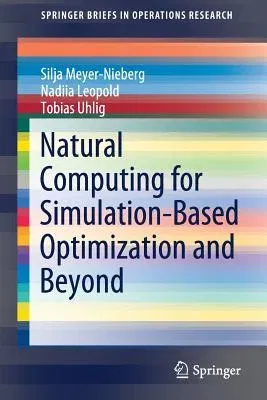Silja Meyer-Nieberg
(Author)Natural Computing for Simulation-Based Optimization and Beyond (2020)Paperback - 2020, 7 August 2019

Qty
1
Turbo
Ships in 2 - 3 days
In Stock
Free Delivery
Cash on Delivery
15 Days
Free Returns
Secure Checkout

Part of Series
Springerbriefs in Operations Research
Print Length
60 pages
Language
English
Publisher
Springer
Date Published
7 Aug 2019
ISBN-10
3030262146
ISBN-13
9783030262143
Description
Product Details
Book Edition:
2020
Book Format:
Paperback
Country of Origin:
NL
Date Published:
7 August 2019
Dimensions:
23.39 x
15.6 x
0.38 cm
ISBN-10:
3030262146
ISBN-13:
9783030262143
Language:
English
Location:
Cham
Pages:
60
Publisher:
Weight:
108.86 gm